In the best times, access to reliable transportation can contribute to the economic development of rural communities. But when transportation is unavailable or unaffordable, the outcome can be disastrous, preventing people from receiving critical supplies and services and threatening their economic stability.
During emergency situations such as the COVID-19 outbreak, such consequences can not only be inconvenient, but also devastating, especially for vulnerable groups such as rural smallholder food producers.
The COVID-19 lockdowns have brought supply chains to a virtual standstill across the globe, but while industry in cities has shifted from workplace to virtual space, the effects have been exacerbated in rural areas dependent on traditional market activity. These communities have been left with intermittent supplies of goods and an erratic flow of information — all of which has had a major knock-on effect for rural villages, livelihoods and businesses.
But the farmers we work with are used to confronting challenges head-on.
While devising solutions to sustain their livelihoods and overcome this economic jam, Heifer International and its farmers contrived new ways of using and repurposing transportation to build pathways for the transfer of food, services and information.
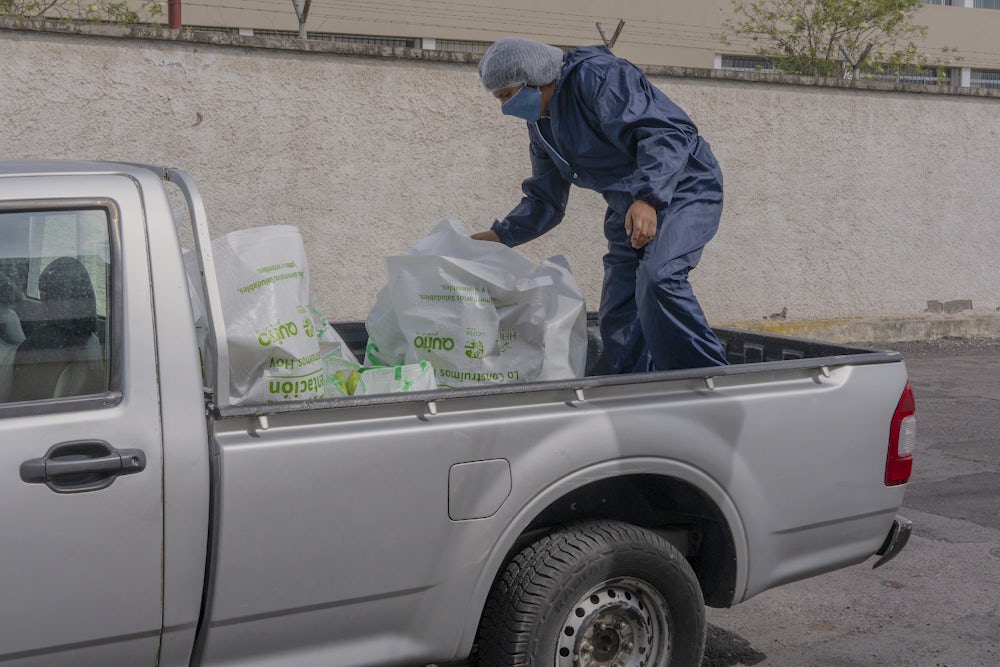
When Ecuadorian cities were put under lockdown to curb COVID-19 cases, the disruption in supply chains led to a shortage of fresh food and increased prices in local markets. As consumers struggled to access fresh harvest, farmers associations supported by Heifer Ecuador’s Future of Food Program started an online marketplace to deliver fruits and vegetables from farms in the Andes to the plates of residents in the cities of Quito and Cuenca.
The marketplace, La Cosecha Del Dia, or “Daily Harvest,” is run by four farmer-led associations. It lets buyers choose goods from an extensive catalog — the selection ranges from fresh fruits and nutritious vegetables to organic cocoa butter and aromatic spices — and place their orders online.
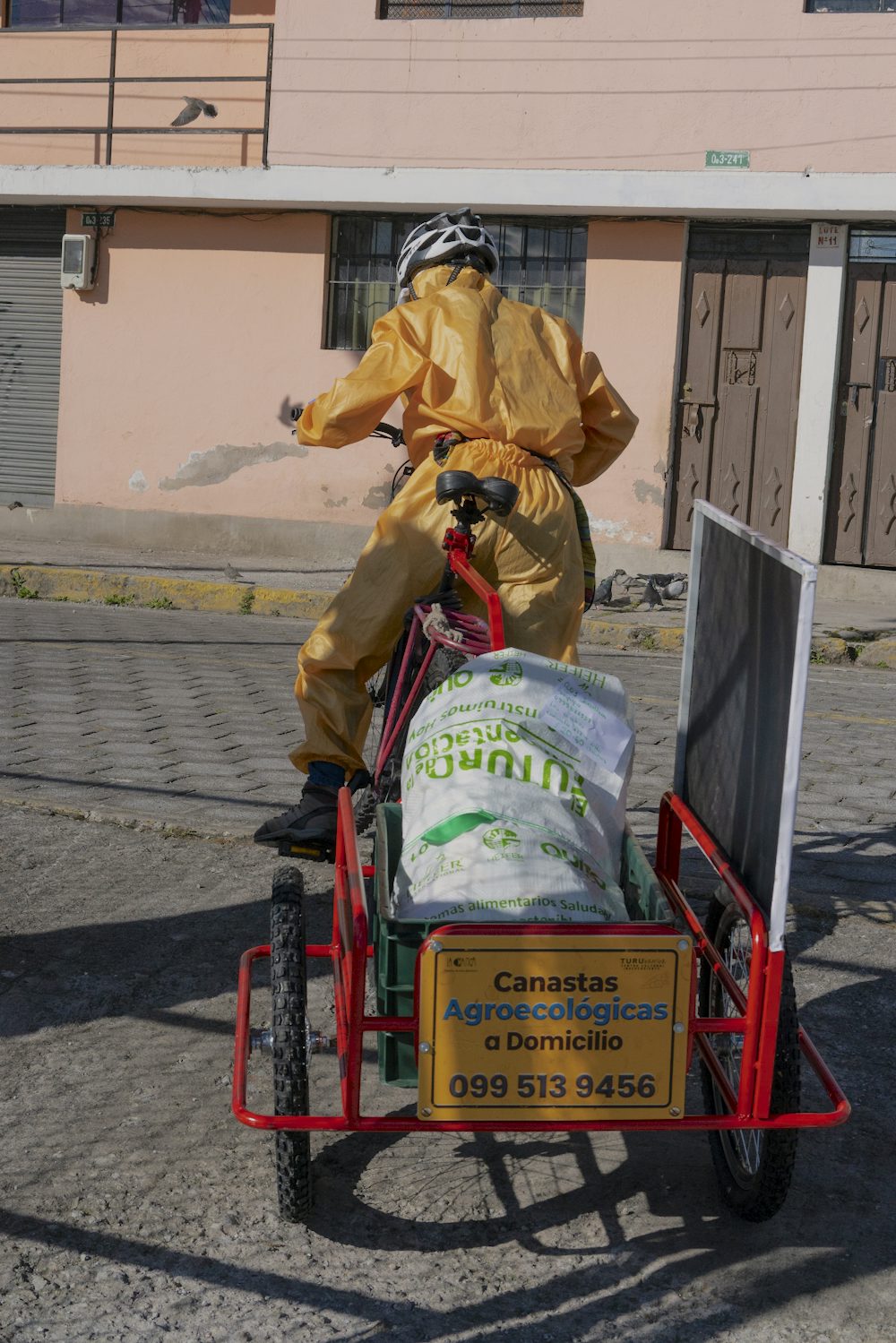
Upon receiving the orders, the farmers load the produce onto trucks to be delivered to city depots where they are checked for quality and packaging. The delivery partners — members of La Changa Art Collective, a group of young entrepreneurs — load the orders onto their bicycles, peddle the streets of Quito and Cuenca and deliver the products to customers’ doorsteps.
“The bicycle ... is our main means of transport,” said Karen Salcedo, a member of La Changa. “It allows us to save money, exercise and be respectful of the environment.”
This arrangement has helped ensure fair returns to the farmers, access to safe and nutritious food for consumers and employment opportunities for young people like Salcedo to get through the pandemic.
In the rugged Himalayan terrain of Nepal, transporting produce from remote locations to urban markets can be an exorbitant cost for smallholder farmers. At the same time, relying on transportation services from intermediaries can mean lower — and often unfair — returns, which can push farmers further away from earning a living income for their families.
During the second wave of COVID-19, farmers lost several hundred pounds of produce due to unreliable transportation and market access. To prevent further losses — and address future transportation challenges — Heifer Nepal invested in pickup trucks for rural farmers’ cooperatives.
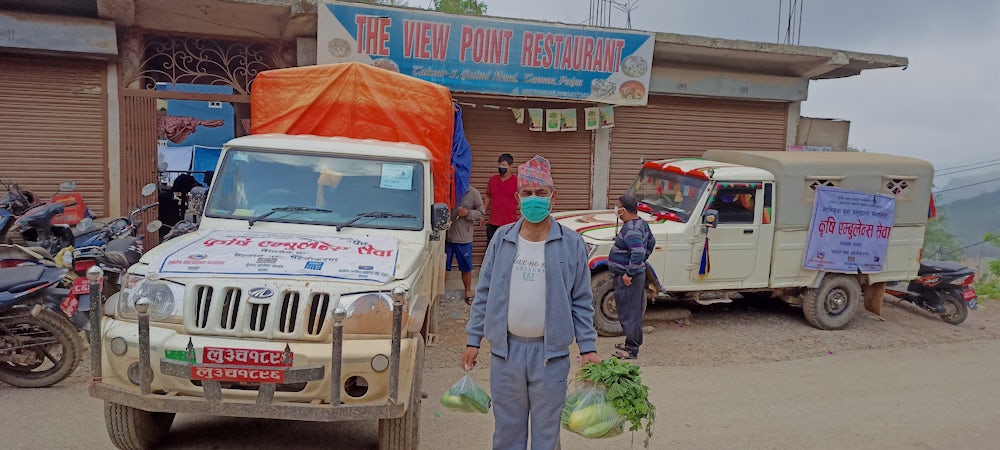
The cooperatives began using the pickup trucks to collect farmers’ products and transport them to the markets. They also repurposed the vehicles as “agri-ambulances” to deliver fresh fruits, vegetables and even milk to people confined to their homes.
To date, the agri-ambulances have transported more than 44,000 pounds of produce from 109 smallholder farmers to over 5,000 consumers — and the count continues!
Building on this success, Heifer Nepal has collaborated with cooperatives and local governments to provide 28 additional vehicles to help women-led farmers cooperatives overcome transportation roadblocks with their businesses.
For farmers dependent on group-based methods of learning to improve their production and business development practices, restrictions on in-person gatherings have created barriers to accessing education and timely support.
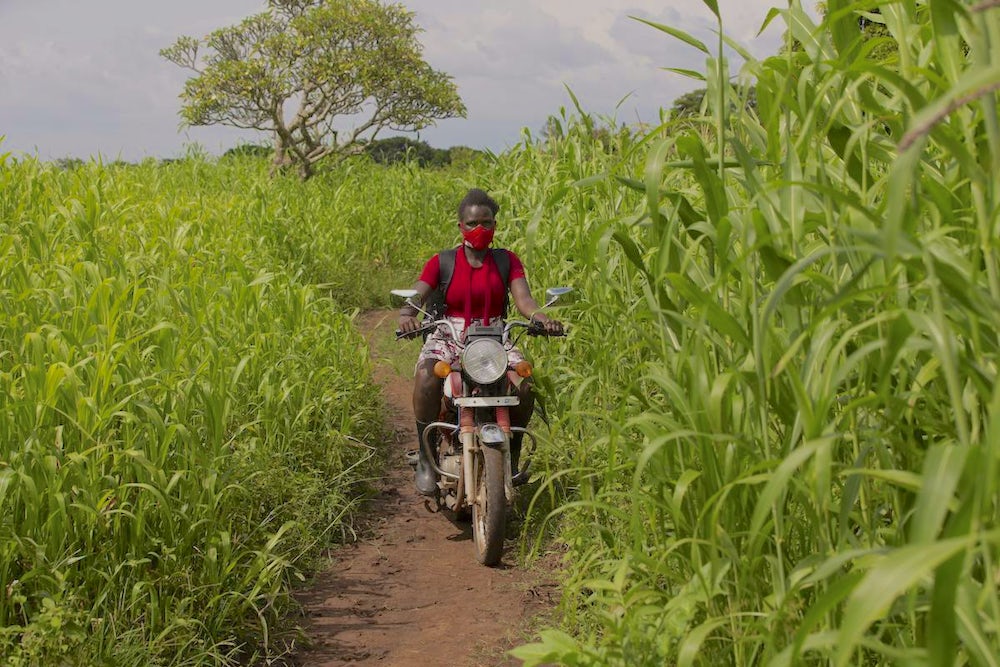
COVID-19 restrictions imposed in Uganda prevented project staff from conducting Farmer Field School sessions with the community, impeding knowledge sharing during a critical planting season. Leah Amongi, a community trainer from Heifer Uganda’s Learn for Agribusiness project, decided to take this challenge head-on.
“COVID-19 is here to stay,” Amongi said, “but we cannot allow our farmers to starve.”
With no access to public transportation and limited access to boda-bodas, the local term for bicycle or motorcycle taxis, Amongi decided to purchase a motorbike and drive herself to deliver training and inputs to the doorsteps of the area’s farmers.
Covering four groups a day riding her motorcycle, Amongi conducted learning sessions with farmers in Dokolo district, providing training on sowing quality seeds, line spacing, weed and pest control, and post-harvest handling — all while adhering to recommended precautions and safety measures.
“Given that we cannot gather all farmers in one place, I now reach out to the farmers. I have an obligation to serve even in times of hardship,” shared Leah.
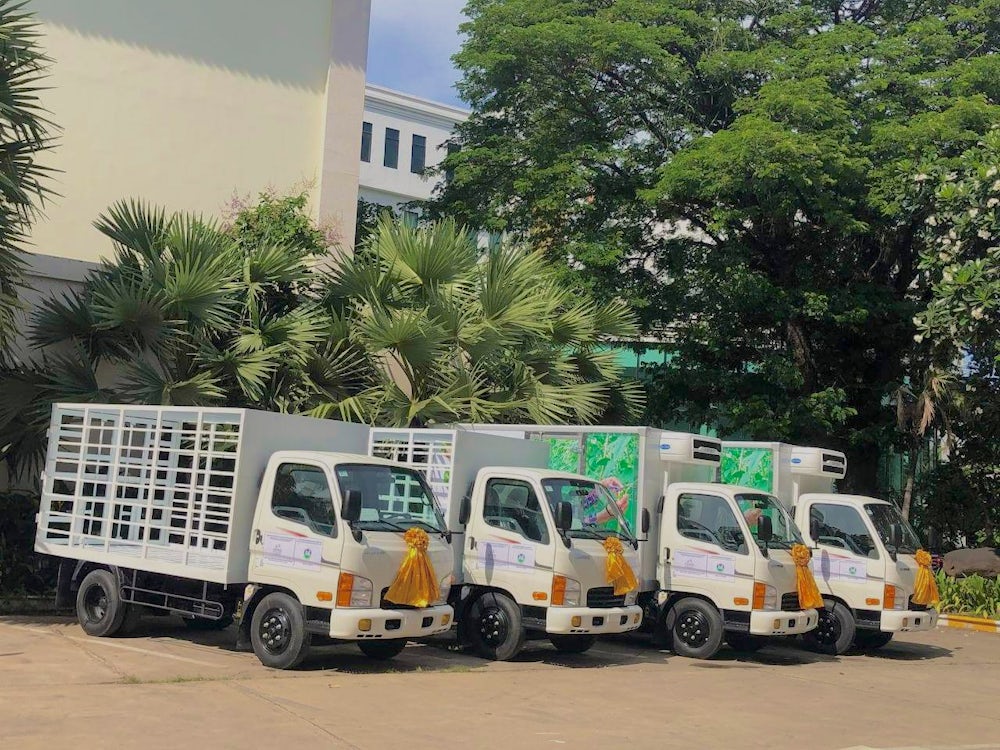
Erratic transportation services and inadequately equipped vehicles can cause huge losses of perishable products. During the COVID-19 crisis, transportation services have been critical — but unreliable — for rural communities in Cambodia, causing lower returns for producers and higher quantities of agricultural and food waste.
To mitigate this issue, Heifer Cambodia delivered 21 vehicles, including three cold-chain trucks, 4 transportation trucks and 14 cold-chain tuk-tuks, three-wheeled motorized taxis, to 21 local agricultural cooperatives.
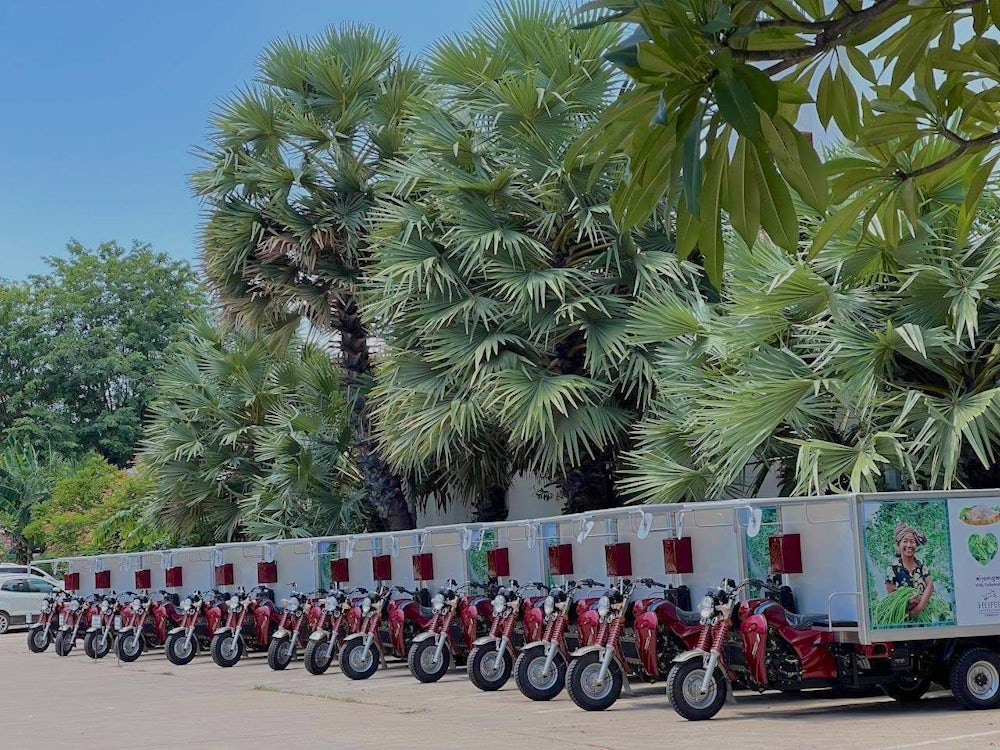
Part of Heifer’s Poultry Project of National Pride, the vehicles will support 54,000 smallholder farming families in 11 provinces by providing product refrigeration and storage and supporting aggregation and distribution. The temperature-controlled vehicles will also help farmers transport agricultural commodities to markets and retailers while maintaining fresh quality and reducing waste.
Rural communities, lacking effective communication networks, often have to rely on word-of-mouth to access information. During the COVID-19 outbreak, this has meant more dependence on hearsay, inability to verify messages and increased vulnerability to misinformation.
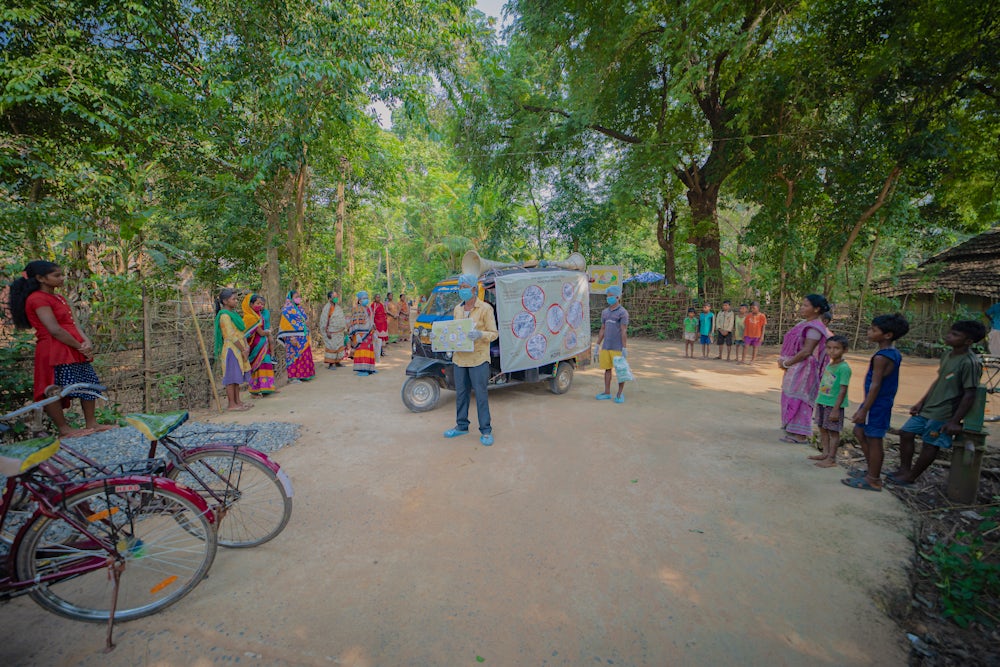
When the pandemic hit, rumors of chickens being carriers of the coronavirus adversely affected local sales and the food security of families in rural parts of Odisha, India.
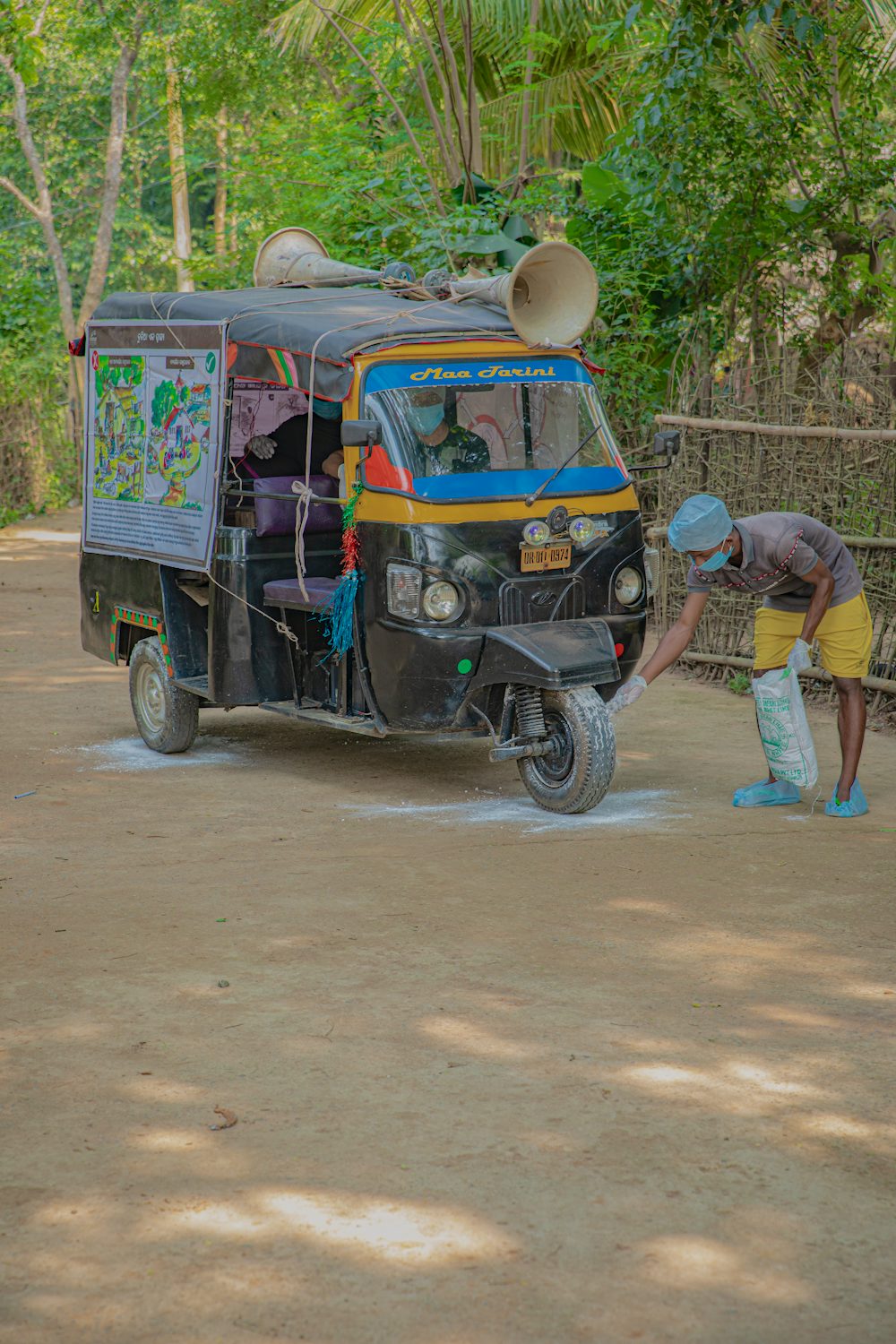
With most families in this area practicing backyard poultry, misleading claims around the animals risked destroying local poultry businesses and negatively impacting household nutrition.
To address these challenges, Heifer India sent several mobile units equipped with speakers and sound systems to hundreds of villages in rural Odisha to broadcast accurate information about COVID-19 and poultry.
The mobile auto units drove through the villages relaying audio messages addressing virus precautions and queries around poultry production and consumption in the local dialects — all interspersed with captivating jingles.
The timely education of farmers and communities helped sustain poultry production and address nutrition challenges amid a shortage of other food supplies in the villages.
